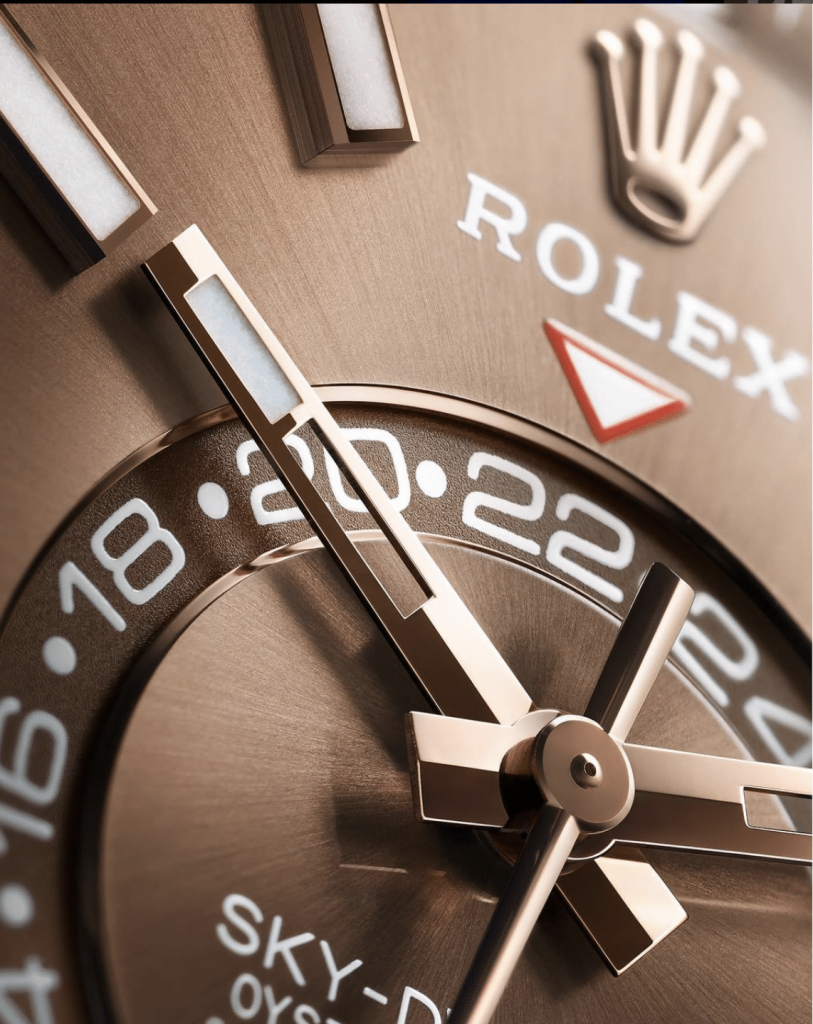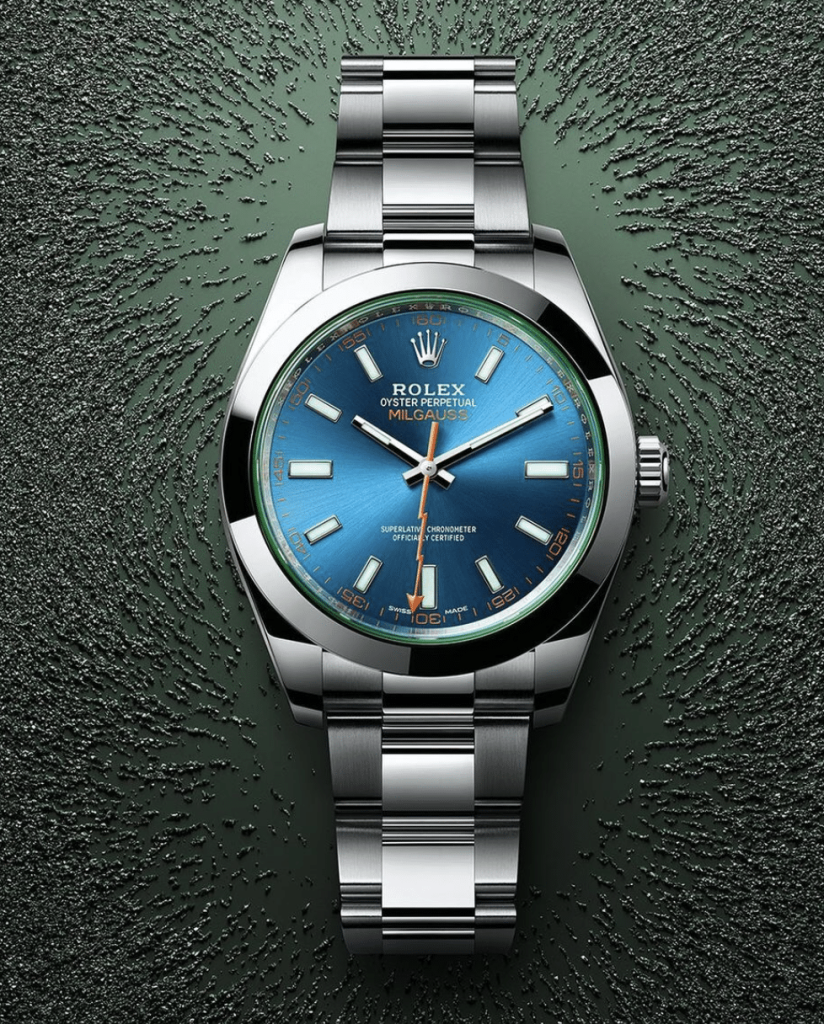How to authenticate a Rolex
When buying a Rolex watch from a second-hand seller, consumers should be mindful of one major risk: being duped by a counterfeit. It is not unusual for unethical vendors to charge high prices for imitation Rolex watches that have been inexpensively fabricated especially because new Rolex’s are difficult to find in South Africa. In comparison, genuine timepieces are composed of premium materials and constructed with exquisite craftsmanship. Consequently, it can usually be simple to distinguish an original from a knockoff.
Nevertheless, assessing the validity of pre-owned models may be more difficult because they do not always come with their initial documentation or packaging. Hence, it is advised to examine the authenticity before making a purchase to safeguard against investing in an imitation product. You can confirm this by verifying the following.

Rolex Serial Number
Rolex watches are unmistakable due to the unique serial number on each one. This sequence is composed of between 4 – 8 characters, and depending on when it was manufactured, can begin with a letter and then be followed by numbers. Of course, counterfeit manufacturers try to replicate these numbers but they will never match up with genuine Rolex models.
It’s highly advisable to inspect any pre-owned Rolex watch that you’re considering purchasing and make sure the serial number matches any documentation or certificates that come with it. In cases where this paperwork is not available, further investigation must take place before investing in the timepiece so you can be sure of its authenticity.
Serial number placement & quality
One way to identify an authentic Rolex watch is by examining its serial number. This number may be located either on or behind its bracelet at six o’clock, and assessing such placement as well as its content can prove helpful. In fact, over time Rolex has experimented with different placements for these numbers, which can make it difficult to assess when inspecting pre-owned models; thus determining when a specific watch was produced first is always recommended.
For instance, before 2005 authentic Rolexes had their serial numbers positioned behind their bracelets by six o’clock. Nevertheless, in that year they began printing codes on rehauts (inside flanges) as a measure to make counterfeit watches more easily identifiable since placing such numbers there demands highly accurate precision. Since 2008 onwards serial numbers have been placed exclusively in this area.

The Rolex logo
Recognised around the world, Rolex prides itself on top-quality craftsmanship and a perfectly placed crown logo. This is visible at all times on a genuine watch at the far left of the dial, and any flaws such as glue residue or misalignment may hint that it is not authentic. Starting from 2002 onwards, Rolex also etched their logo onto glass near the six o’clock mark – this will require close inspection with a magnifying glass to spot as it is so small and barely visible. Counterfeit models are less likely to have this feature, making inspection key in determining whether a second-hand watch is genuine.
Metal Case Back
or watch hobbyists, a glimpse at the back of a timepiece can be telling. They might know that many luxury watches have clear case backs – but Rolex stands apart in this regard. Unlike other brands, most Rolex watches have smooth metal cases on the rear side with very few exceptions where more expensive and rare models may show off their intricate movements through an opening.
When someone is buying second-hand and notices there is transparency to the back of a predicted Rolex, it’s likely not authentic unless it’s one of these special models you can tell from its price tag. Even more, genuine Rolexes don’t usually carry any engravings on their case backs – another indication for counterfeiters who might leave out details hoping buyers won’t notice them. At any rate, always take a closer look at the rear side when purchasing pre-owned pieces; this could give some valuable insights into its authenticity.

Movement
Rolex’s esteemed reputation has been earned over the course of decades of dedicated craftsmanship. This commitment to quality is reflected in all their watches, be they brand new or pre-owned, and must not be ignored.
The key to verifying whether a watch is genuine or not lies in examining its performance as well as aesthetic cues. The vast majority of Rolex pieces feature mechanical movements, with only certain battery-powered models such as the Oysterquartz being exceptions. Imitation pieces usually have less expensive automatic mechanisms that can easily give them away as fakes.
As a result, it might be worthwhile doing some research online regarding the exact movement type for your second-hand purchase from the pawn shop or speaking to an expert on the subject for confirmation.
Seconds hand
When you are evaluating a Rolex, one of the key indications of its authenticity is the smoothness of its seconds hand. Genuine Rolex watches boast a fast-moving second hand which glides around the dial, unlike more budget-friendly timepieces that have a distinct ticking transition as it moves around. The manufacturing process for this feature is difficult to duplicate and therefore serves as an obvious sign of authenticity for Rolex.
Sound
For a watch to qualify for the luxury brand label, its movement must be quiet and soundless. This is just one of the reasons why Rolex watches receive such high prices from enthusiasts. To confirm the authenticity of a Rolex timepiece, it’s worth performing a simple test – simply hold it next to your ear. Should you be able to hear ticking noises, then without doubt it must be counterfeit since no other can replicate this soundless motion produced by meticulous craftsmanship.
Date Display
When attempting to determine the authenticity of a second-hand Rolex watch, one should always inspect its date display on the dial. Every genuine Rolex will showcase a magnifying lens above the date window, known as the ‘Cyclops’. This feature increases clarity by 2.5X, making it much easier to read than any imitation may have. The Cyclops is renown for its polished quality and lack of imperfections; thus any sign of flaws suggests that the watch in question is not an authentic Rolex.
Design and dial quality
As you peruse pre-owned Rolex watches, be sure to inspect the dial for quality craftsmanship. This luxury brand is known for its high standards and any visible signs of disrepair, such as glue residue in an hour marker or a misaligned baton could indicate that it has not been subject to the strict quality controls associated with Rolex. Bear in mind however that there may be some wear and tear on older watches, though this should not equate to serious damage which suggests a counterfeit watch made with inferior materials.
Watch weight
Authenticating a second-hand Rolex watch can be challenging, however, the weight of it can provide an initial indication. Those familiar with watches will likely notice that an authentic watch is significantly heavier and sturdier than standard models. For those less experienced, comparing a potential Rolex to other brands can help to gauge the difference.
To guarantee authenticity, seeking out a reputable retailer is essential – Luxity are experts in buying and selling pre-owned Rolex watches and guarantee you the extra peace of mind. Have any questions? Our knowledgeable team are on hand to answer them or simply browse our complete collection online today.

Before looking to buy or sell a Rolex it is always important to make sure that you know what the price of your watch is in South Africa. Always ensure you are using a entrusted reseller like Luxity whether you are buying or selling any Luxury timepiece.
[products category=”rolex” columns= “3” Limit=”6″ order=”Desc” orderby=”date”]